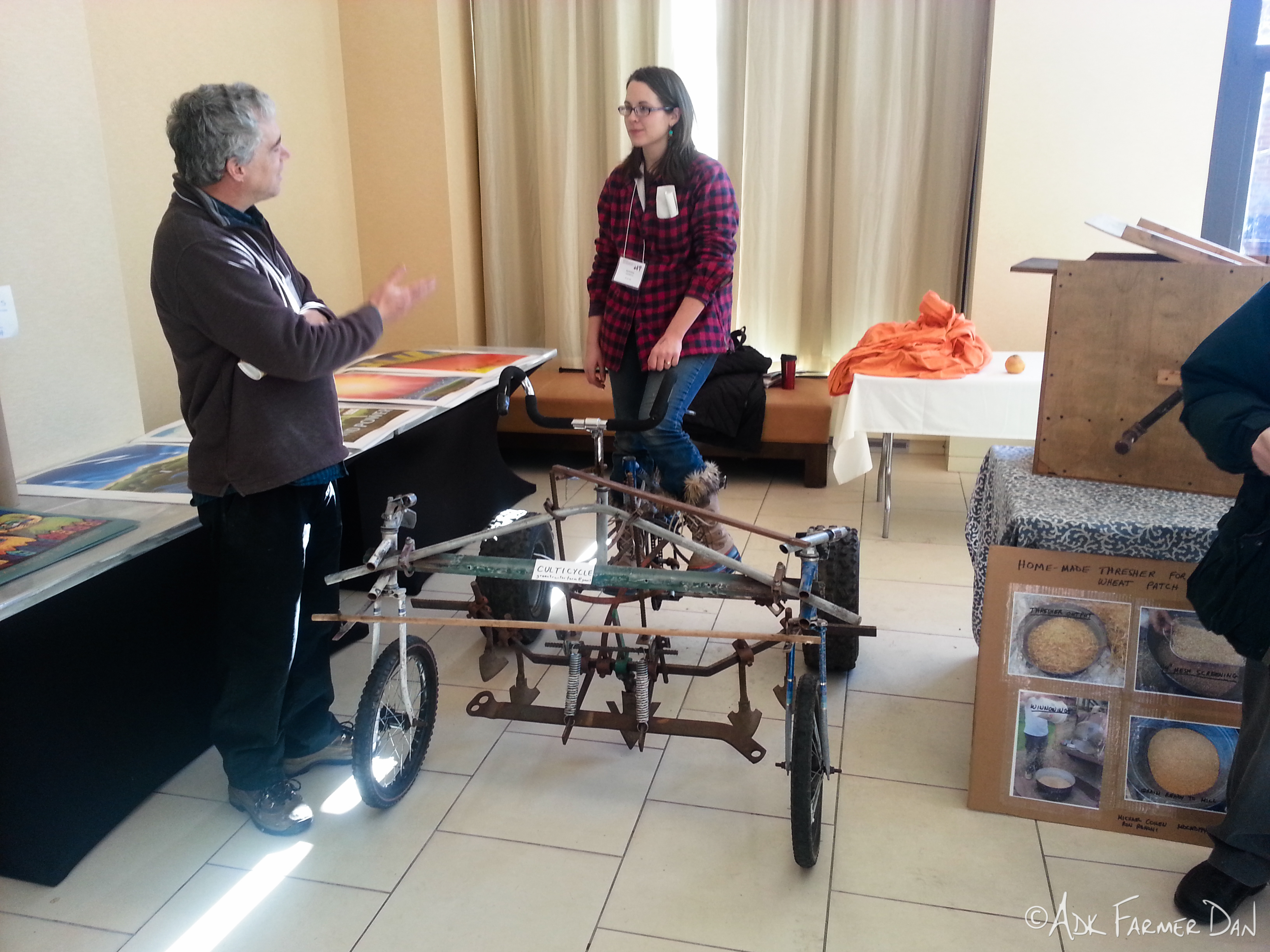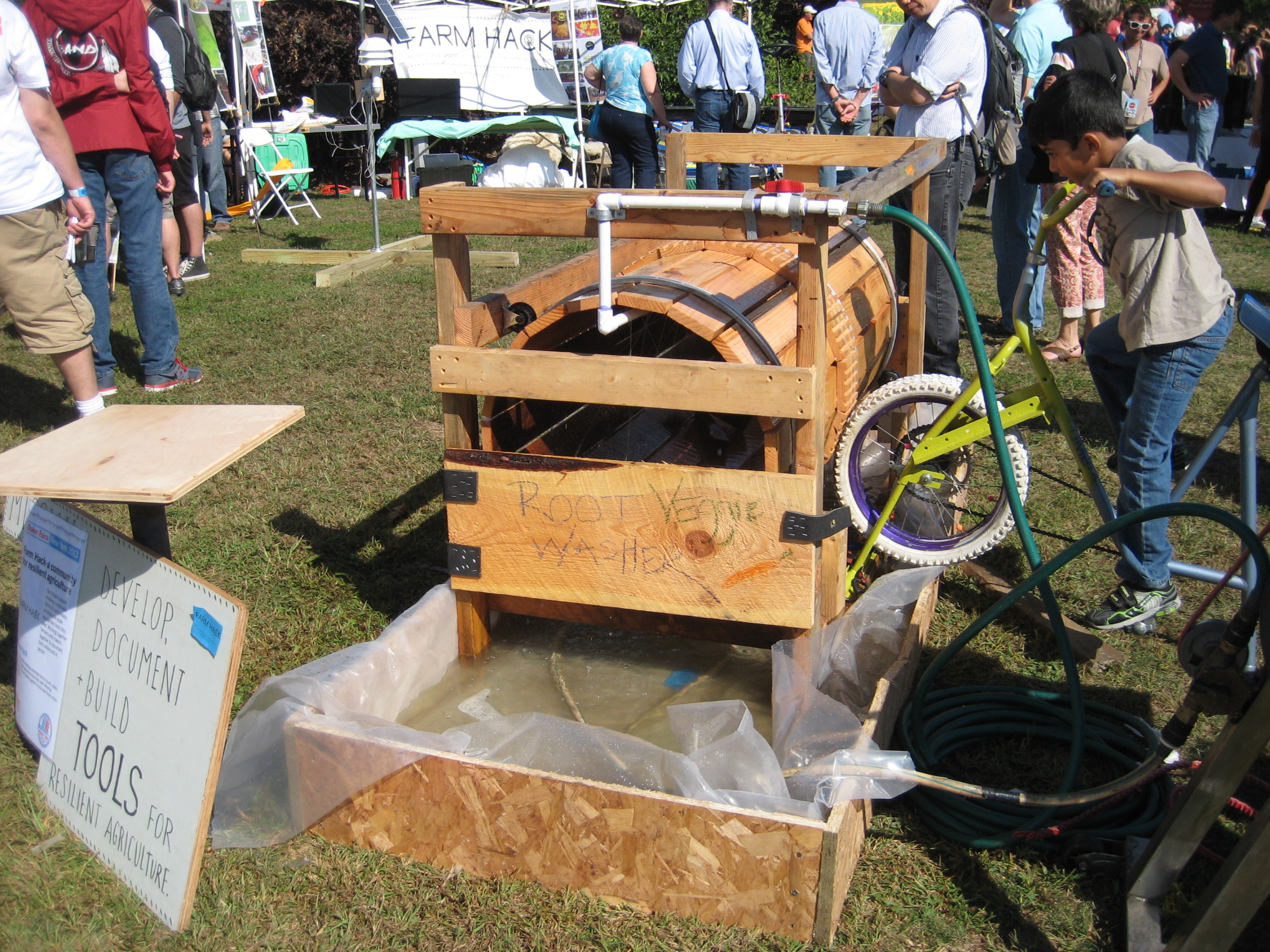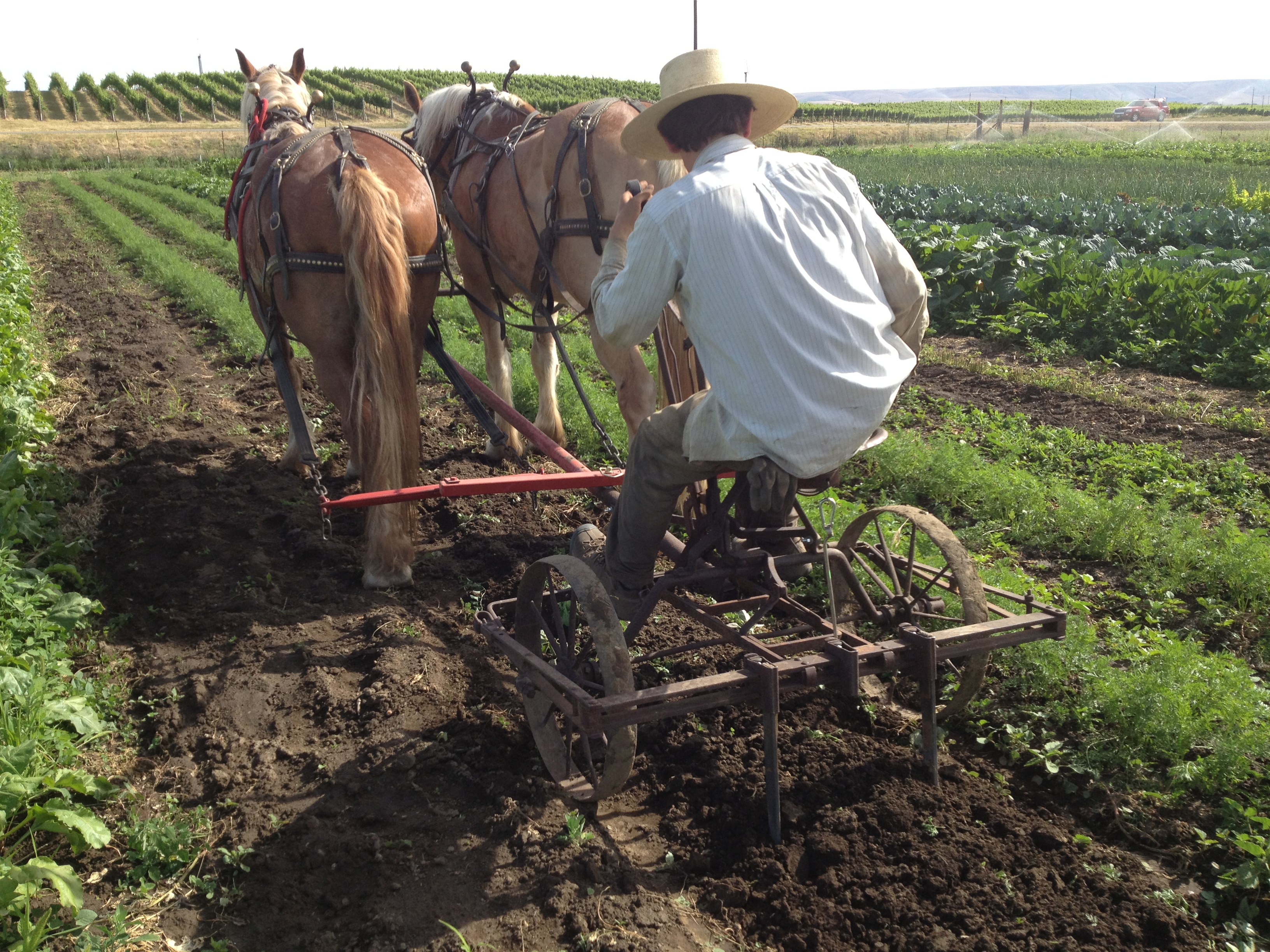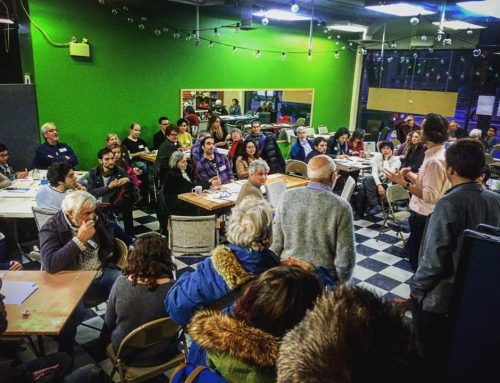How can small-scale farmers network to share ideas, innovations, and inventions to increase the resilience of sustainable agriculture and rural economies?
Before the industrial revolution, low-input agriculture was the norm, but now, farmers must make a conscious choice if they want to avoid large scale mechanization. Many small-scale farmers in the US are discovering new means of food production and in the process, innovating tools and equipment. Innovations can range from new greenhouse designs, mechanical weeders, to crop planning software.
Once new innovations are realized, many other farmers might benefit from the ideas: bicycle-powered root washers, and elaborate bird scaring machines, to name a few.
Farm Hack is an online platform and community of farmers and innovators sharing agricultural ideas and inventions. The website is open-source and collaboratively managed. Any person can create an account with the site and browse the many innovations presented by resourceful, thrifty, and downright scrappy farmers.

FarmHack homepage, contains links to hundreds of open source tools.
The project was founded in 2010 by farmers and organizers who felt that an internet platform would be a perfect way to network ideas coming out of the far reaches of rural America. Networks of knowledge and ideas can have a huge impact on local adaptive capacity and rural agricultural farm systems.
The website is managed on an open-source content-management framework known as Drupal, and is committed to “open-source principles”. Any users of the site can access, edit, and add to any of the hundreds of uploaded tools. Users to the site can document the tools they’ve made or modified, and share what they’ve learned with a community of farmers from across the country (and world). The project is maintained by a team of volunteers.
The social and environmental benefits of this model of tool and skills sharing is apparent when scrolling through the products on the website. They are often geared towards renewable energy generation (powered by solar energy, human motion, wind, or horses), and they often involve recycling parts of old machines or retrofitting vintage farm equipment. The philosophy of Farm Hack is to promote “Resilient Agriculture” which presumably encapsulates food production that is low on environmental impacts, and is supportive of the health of farm workers and the vitality of rural livelihoods. In this case, “Resilient Agriculture” spans from local (individual farmers with low-input ecological farms) to regional (networks of farmers transferring knowledge and growing capacities.)
The site contains thousands of users from all over the US and Canada. Dozens of events have been planned around the country relating to sustainable farming including “Organic certification” workshops, Grazing and Pasture management courses, and a course called “Tractor Safety for Women”, among countless others. These events are generally local (some are webinars which can be accessed anywhere) and open to anyone in the Farm Hack network.
In their video introduction, they invite farmers to do the following: “We hope you will join the Farm Hack community. Join in the spirit of open source, mutual aid, appropriate technology, and mechanical innovation. Join us in the regional manufacturing and fabrication of good tools for good farms.”

Petal-powered weeder made from new and recycled parts. Photo by Daniel Rivera

Petal-powered root washer, presented at a community event in 2013. Photo from Farm Hack



